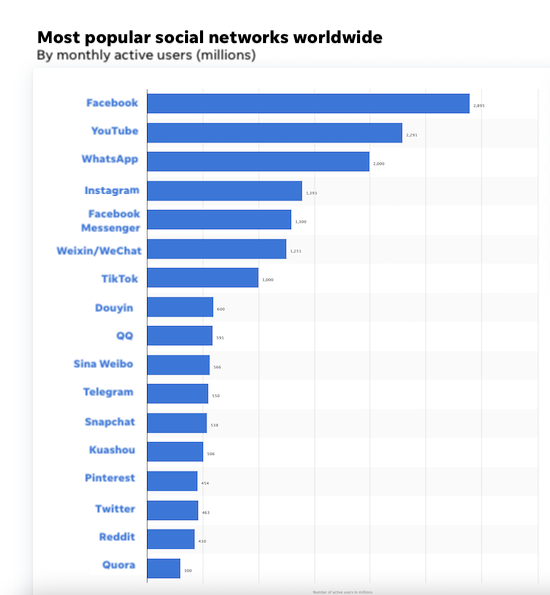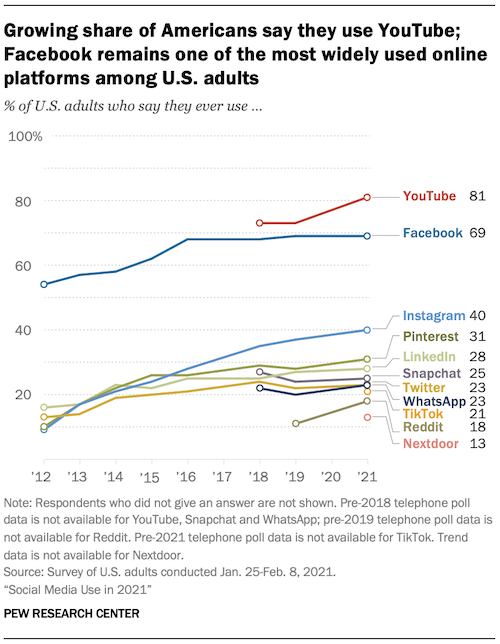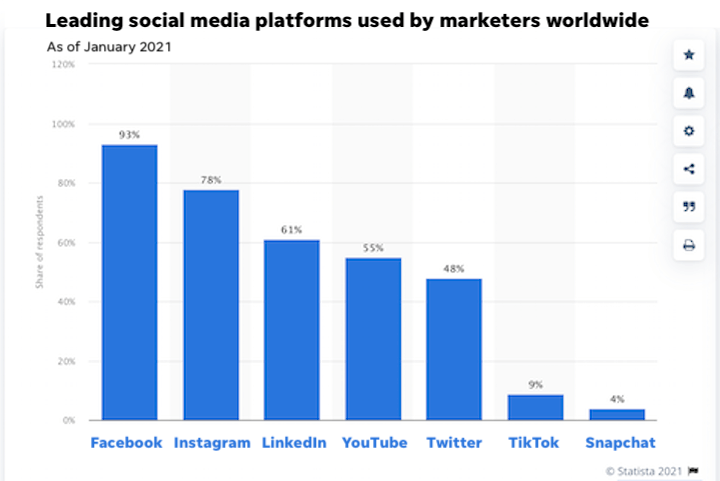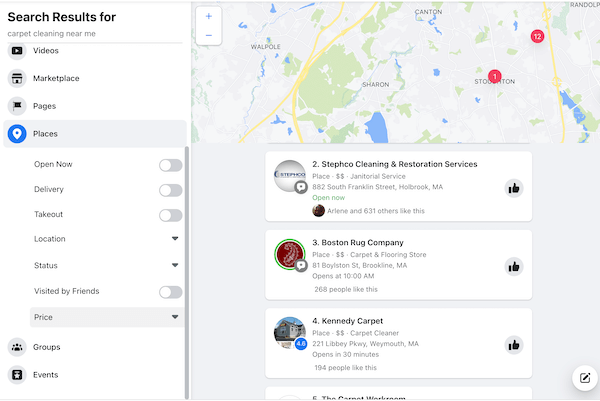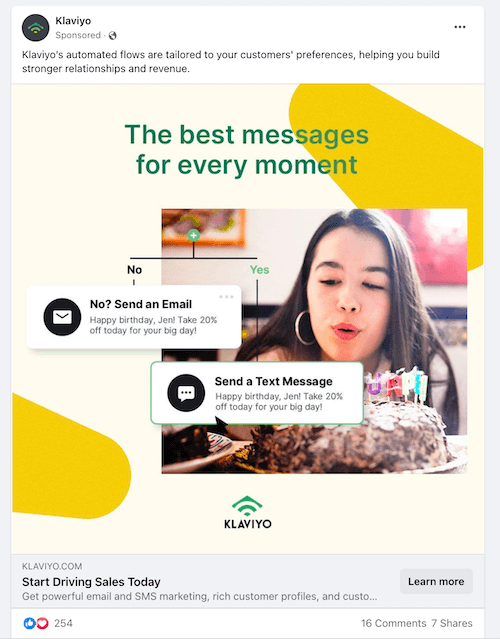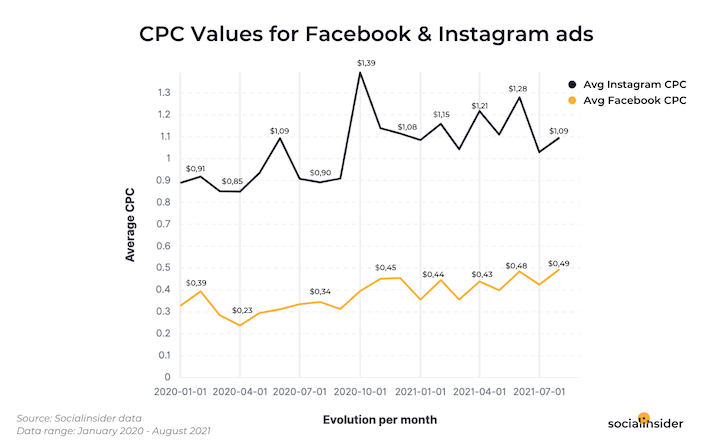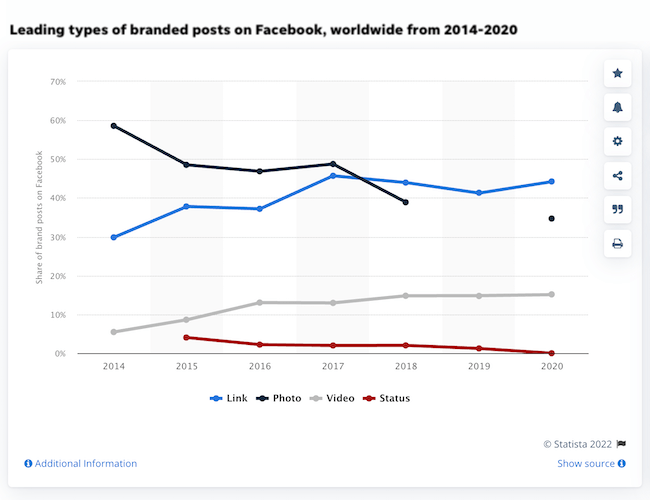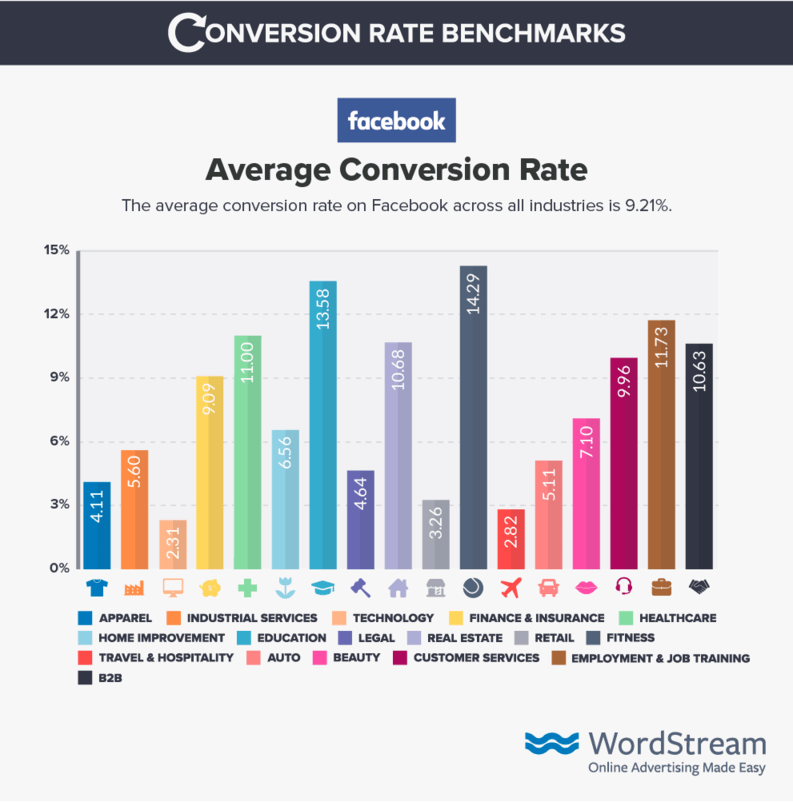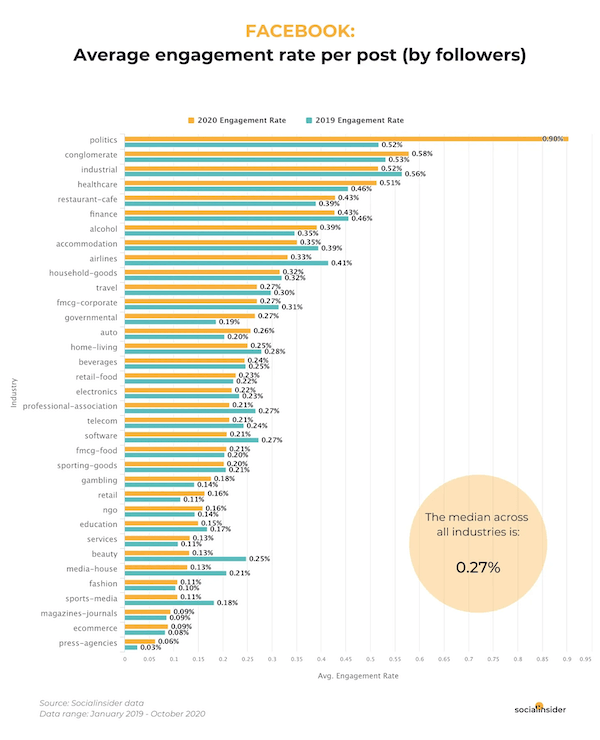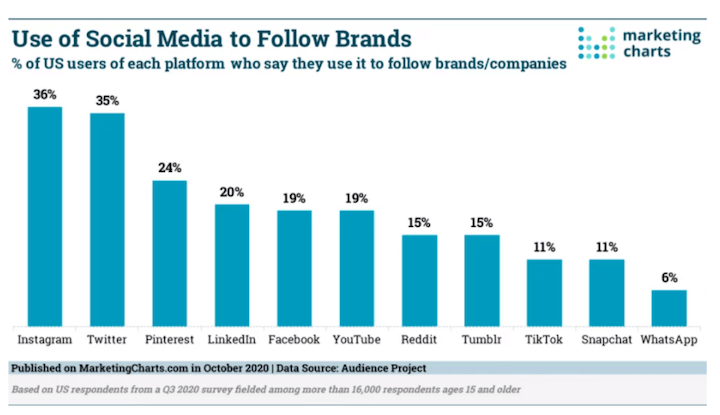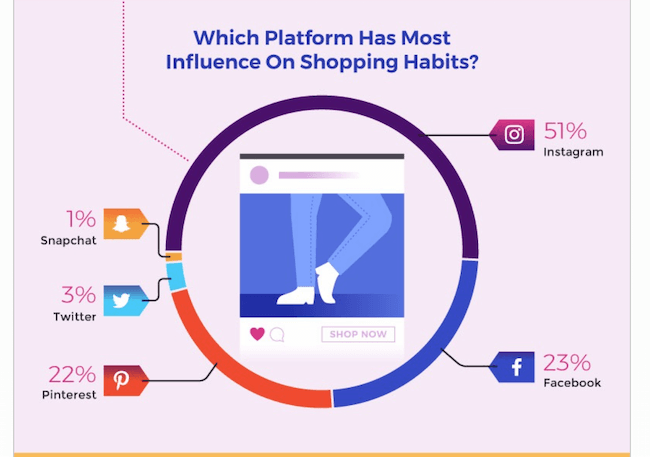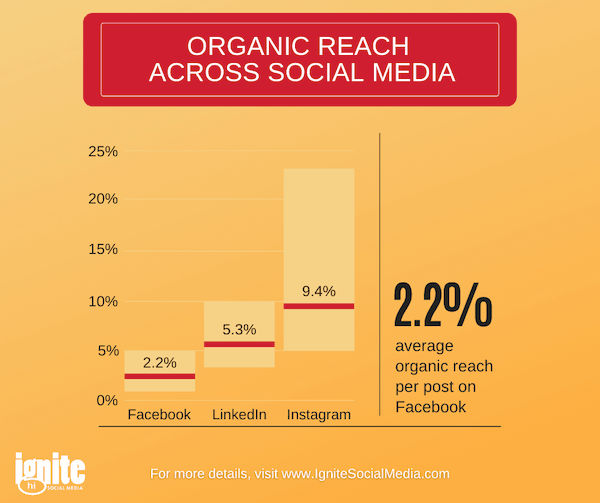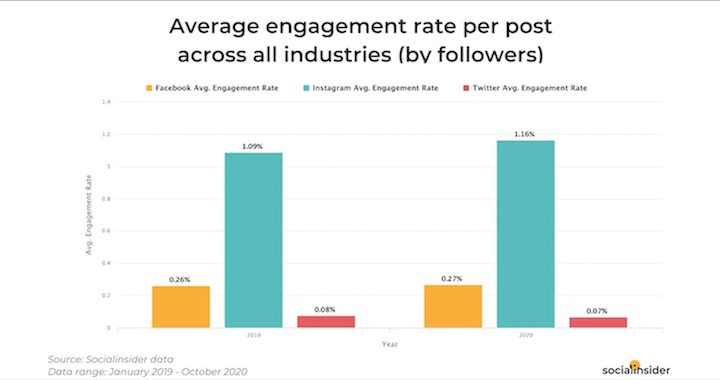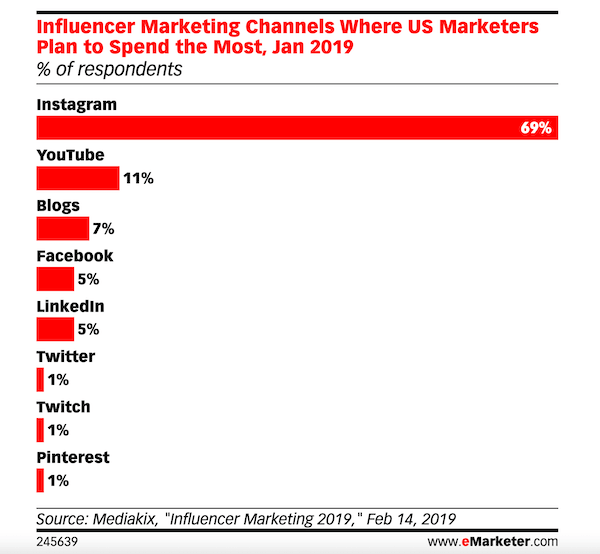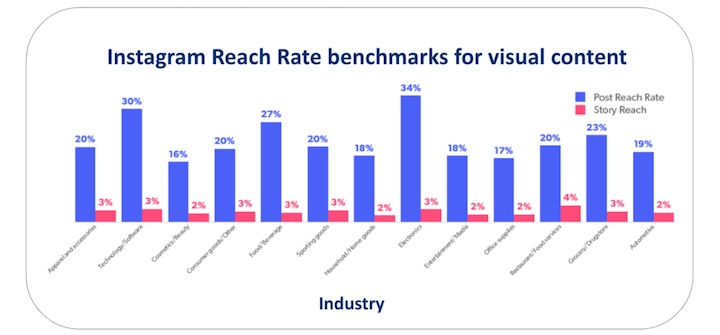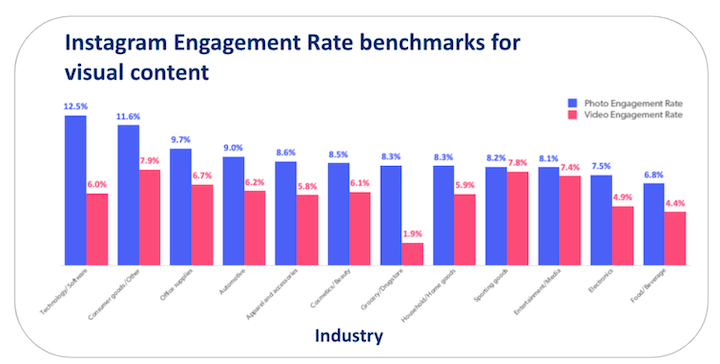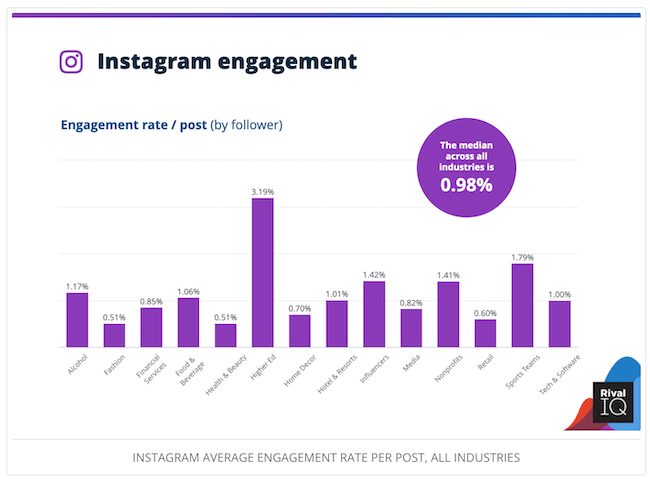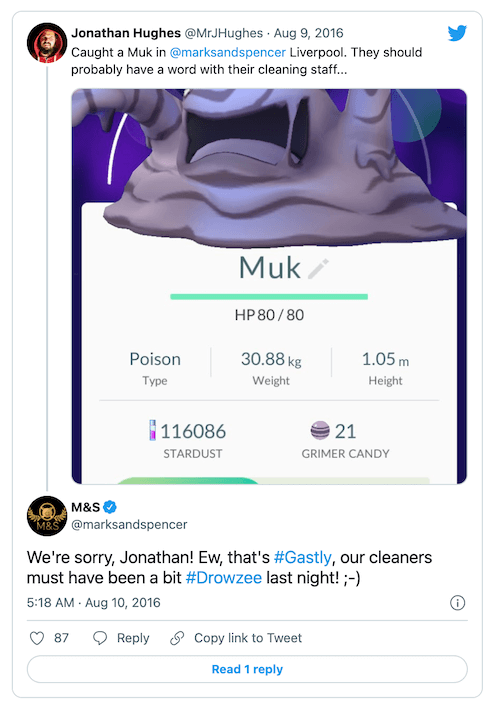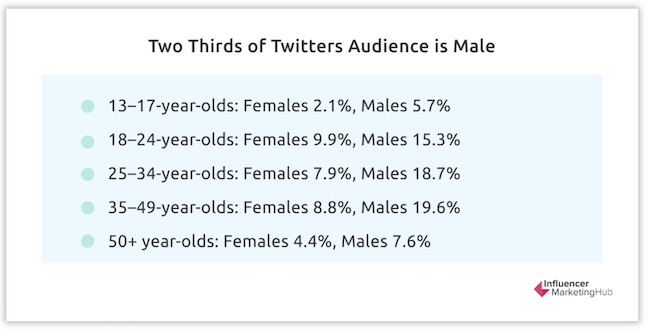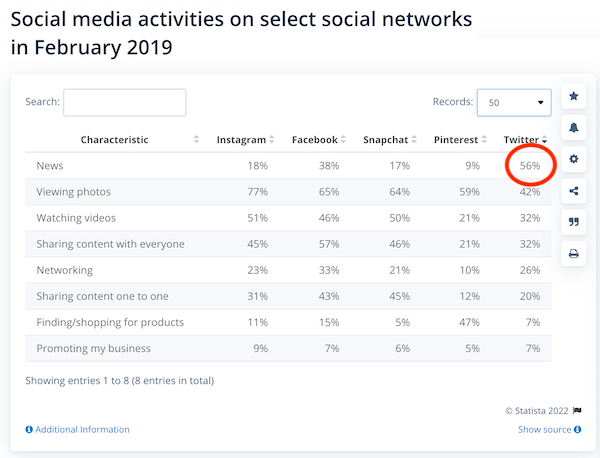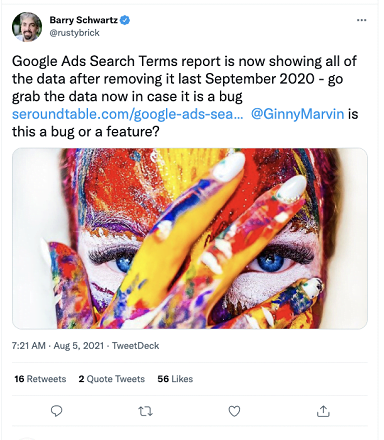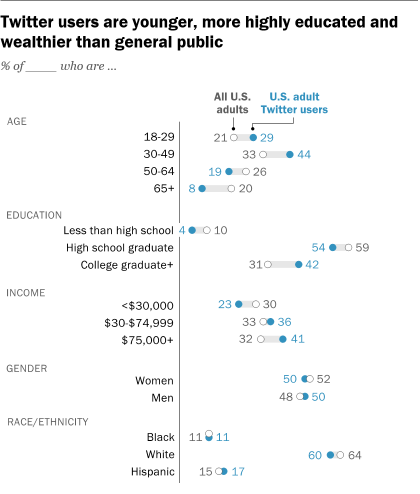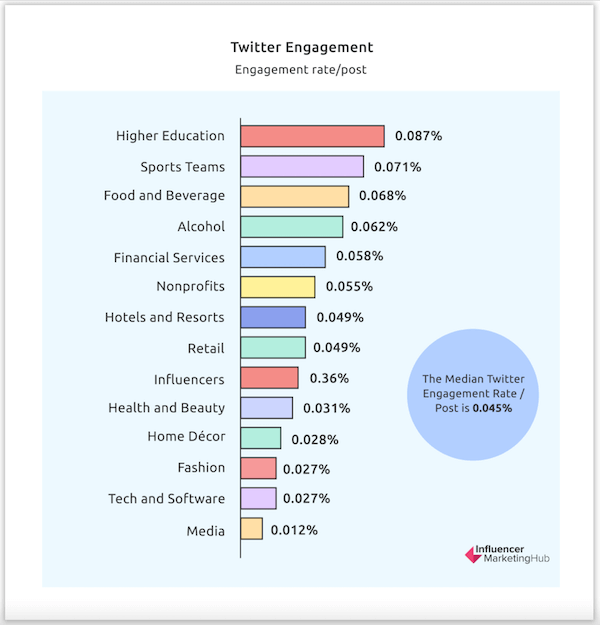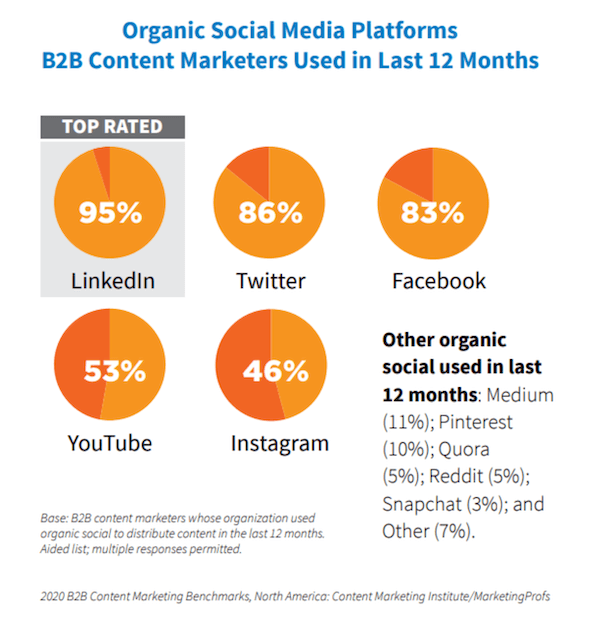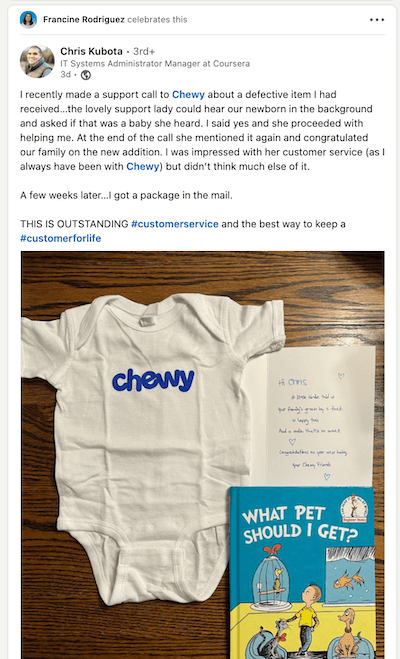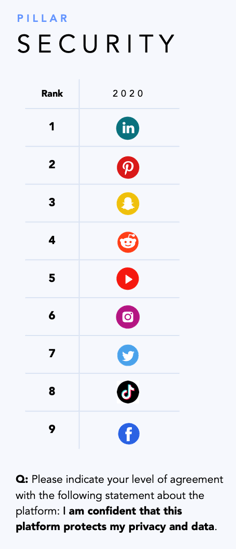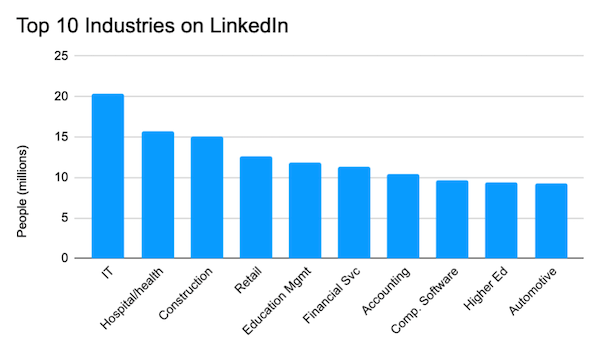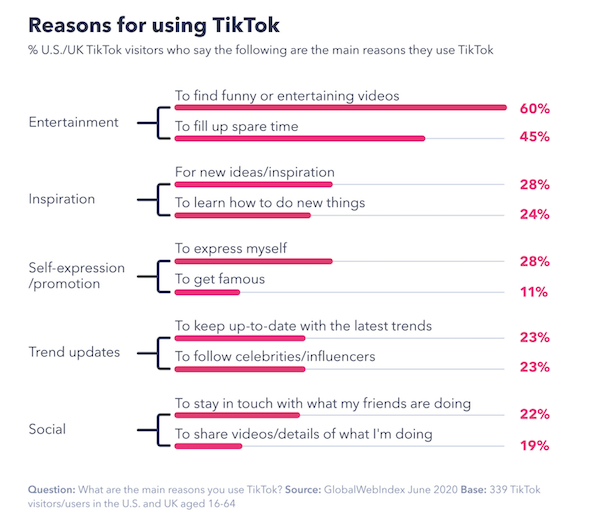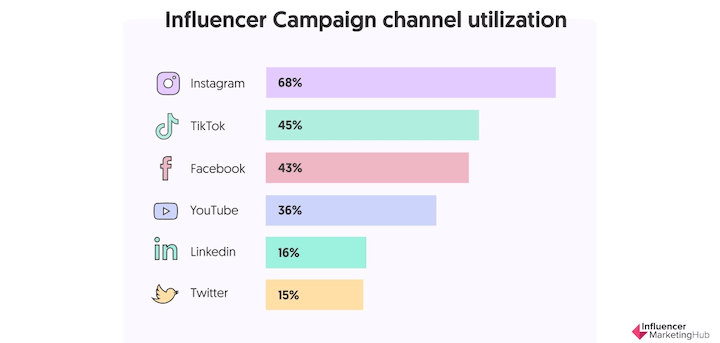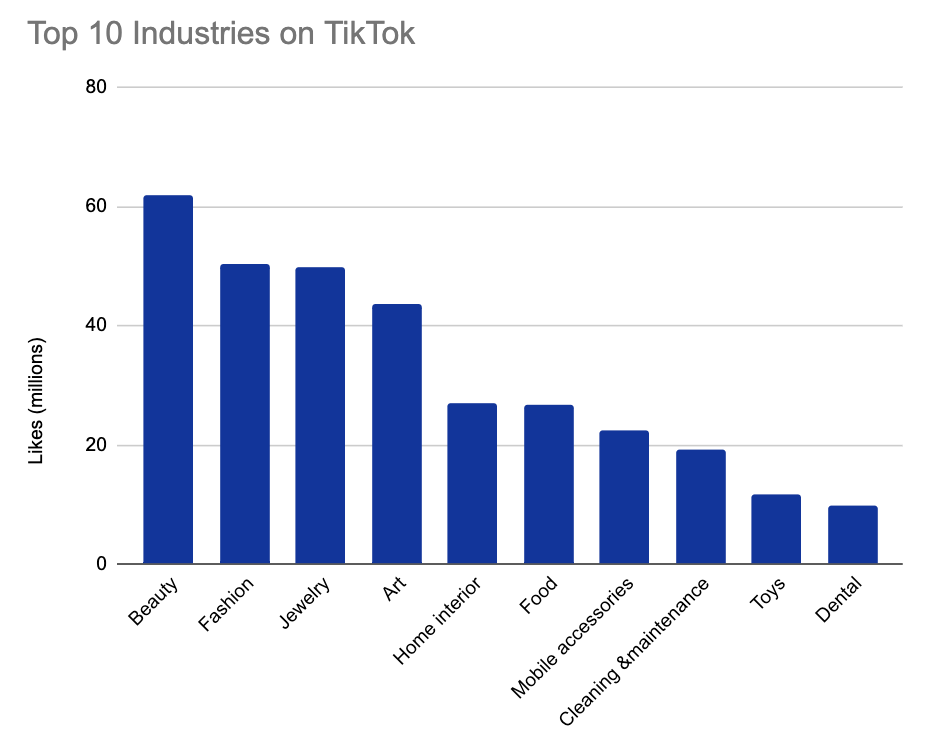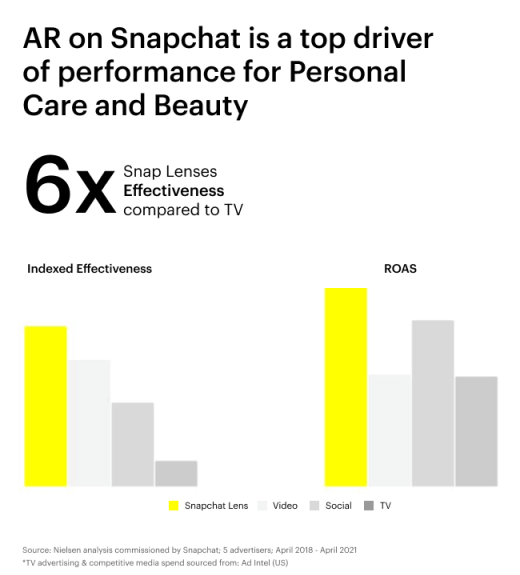This is me, skipping the generic intro with stats about how many people use social media today.
This is also me, skipping the “mystery” element of the intro as I’m 99.99% sure you can already guess what the most popular social media sites are in 2024.
What you can’t guess, and what you probably won’t find elsewhere in a single post, is how I’ll be arriving at that information. No, this isn’t your average roundup of demographic stats for each platform (don’t worry, you’ll still get your fix).
In this megapost, I’ll be doing three things:
- Beating down the word “popular” to a pulp with information like:
—The most popular social media platforms worldwide, in the U.S, and for marketing.
—Popular emotions, content types, and marketing strategies on each platform.
—The most popular industries on each platform. - Whipping up uncommon information like:
—Office supplies in the top three for Instagram engagement
—Twitter’s statistically dark side
—The Instagrammy feel of LinkedIn . - Tossing out creative ideas and actionable tips for using these platforms to grow your business.
—Just look out for the action time tidbits throughout the post.
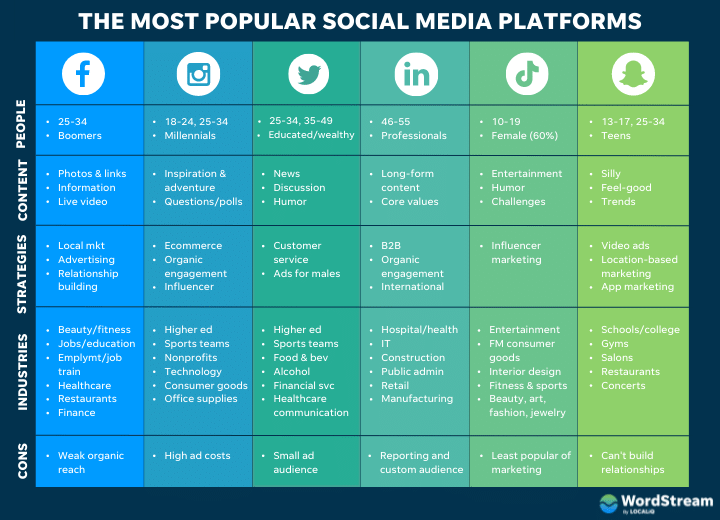
Let’s get those more common statistics out of the way first.
What are the most popular social media platforms in 2024?
The answer to this question depends on many variables, like:
- In the U.S. or worldwide? The top five in these two categories are very different from one another.
- How you define social media: Do you consider YouTube to be a social media platform?
- Data source: Some conclusions are drawn from platform data like monthly active users, while others are drawn from answers to survey questions, like “Have you ever used [platform]?”
- Use case: Some social media sites are not meant for businesses at all.
So with that, we’re going to cover the most popular social media platforms worldwide, in the US, and for businesses.
The most popular social media platforms worldwide in 2024
If we look at Statista’s data as of October 2021, the most popular social media platforms worldwide are:
- YouTube
- Facebook Messenger
- TikTok
- QQ (Chinese instant messaging software)
- Douyin
- Telegram
- Sina Weibo (Chinese microblogging website)
- Snapchat
- Kuaishou
- Quora
The top five most popular social media platforms in the world are Facebook, YouTube, WhatsApp, Instagram, and Facebook Messenger. TikTok comes right after that, but Snapchat is number 11, Twitter is number 15, and LinkedIn isn’t even on there.
This may seem surprising, but while 80% of customers engage with brands on social media, not all social media platforms are designed for this use case. Some are purely for instant messaging and some platforms are wildly popular in other areas of the world, like China.
So let’s narrow our list down to the most popular social media platforms in the U.S.
The most popular social media platforms in the U.S. in 2024
Interestingly enough, the most recent data I could find on monthly active users for each platform in the U.S. alone was Statista’s from 2019—and three years is an eternity for social media. So I went with this chart from Pew Research:
According to Pew, the most popular social media platforms in the U.S. are:
- YouTube
- Snapchat
- TikTok
- Nextdoor
This data is less ideal, as it’s based on the percent of adults who said they ever used the platforms, and it doesn’t look like Facebook Messenger was included. Nevertheless, the list is starting to look more familiar, right?
Now let’s move on to the best social media platforms for marketing.
The most popular social media platforms for business in 2024
According to Statista, the most popular social media platforms for marketing are:
- YouTube
- TikTok
- Snapchat
Data source: Statista
In the rest of this post, we’re going to explore what is popular on each of these platforms.
Note: I didn’t include YouTube here because my brain still doesn’t see it as a social media platform. I know I need to change my act. While I work on that, you can get plenty of YouTube tips here.
Facebook is the most popular social media platform for…
Everything…just kidding (sort of). It is the biggest social media platform worldwide and its versatility makes it a go-to for just about anything. But in particular, Facebook is best for the following:
Local marketing
Did you know that Facebook is right up there with Google My Business as one of the top local business directories? When you think about what a Facebook business page contains, this shouldn’t come as a surprise. This includes:
- Description, category, price range
- Contact info, hours, photos
- Call to action button, reviews, instant messaging
60% of Facebook users visit a local business Page at least once a week, so promote your page, and use it to build relationships, keep customers updated, and connect with your local community.
Action time: Learn how to promote your Facebook business page for free or try these 22 budget-friendly Facebook marketing tips.
Advertising
While your business page is a popular hub for those who know about your business, Facebook isn’t the best platform for reaching new audiences organically. In fact, its organic reach is 2.2% (compared to Instagram at 9.4%).
On the other hand, thanks to its size and targeting capabilities, Facebook is tied with Google as a top digital advertising platform. Facebook ads can reach up to 36.7% of the adult population, the highest percentage of all social media platforms (Twitter is the lowest, at 6.5%).
An average Facebook user clicks on 12 ads per month and the volume of impressions can raise brand awareness and improve your ad performance elsewhere. In terms of cost, the average conversion rate and cost per conversion on Facebook is 9.21% and $18.68, compared to 4.40% and $56.11 for Google Search.
Compared to Instagram, Facebook’s cost per click and click-through rate is $0.49 and 3.06%, vs Instagram at $1.09 and 0.68%.
…to ages 65
Influencer Marketing Hub also tells us that age 65+ is the fastest-growing demographic for Facebook ad reach. In 2021, this group grew by 25%. Now this, of course, doesn’t mean that this is the most popular age group on Facebook. It’s still 25-34, but for the 65+ age group, it is the preferred platform.
Links & photos (or maybe not?)
Here’s an interesting find. According to Statista, photos and links are the leading types of branded posts on Facebook (videos and status updates pale in comparison). BUT this is just quantity of posts—not engagement of posts. So on the one hand, links and photos are a good bet since they’re what users expect, but they’re most frequent because they’re the easiest to create. Which means that posting videos can give you a competitive edge.
Action time: Check out these 9 Ways to Level Up Your Facebook Video Marketing—which include finding your “aha” moment, formatting properly, using captions, and more.
Community and relationship building
Don’t let Facebook’s low organic reach deter you from using it to engage with your audience. Many people often use a business’s Facebook page to check for announcements, store closings, sales, and other recent information. If you use your page in this manner, your customers and close followers will know to check your page frequently and you won’t have to worry as much about showing up in their feeds.
You can then cater your posts to the quality traffic you are getting to your page—sparking discussions and engaging back with individuals, encouraging direct messaging, and more.
The most popular industries on Facebook
Facebook can work for any industry or business, but according to the data, we can see that for ads, the industries that see the highest conversion rates are
- Beauty and fitness
- Jobs and education
- Employment and job training
View our Facebook advertising benchmarks here.
For organic engagement, we see that healthcare, restaurants, and finance verticals see the highest engagement rates.
Action time: Learn how to master the organic Facebook algorithm with these 6 ways to show up in the Facebook News Feed.
Instagram is the most popular social media platform for…
Don’t worry, I’m not going to say visual marketing! Visual marketing should not be an isolated strategy. It should be a staple for all of your strategies, not just on social media. Here is where Instagram stands out above the rest:
Ecommerce
Instagram advertising costs may be higher than Facebook, but that doesn’t mean it’s not a good channel for paid social advertising. First of all, purchase intent is highest on Instagram, with 36% of users using it to follow brands (compared to just 19% for Facebook).
Instagram also has the highest organic engagement rate between users and brands—10 times greater than Facebook, 54 times greater than Pinterest, and 84 times greater than Twitter. And with shoppable ads, Instagram has turned planned shopping on its head and folded product discovery and impulse buying into our organic behaviors, making it the most influential social media platform on our shopping habits.
Still not convinced?
- 81% of people say Instagram helps them to research or discover new products or services.
- 72% report making purchase decisions based on something they saw on Instagram (compared to Facebook at 23%).
- 130 million users tap on shopping posts every month.
- 50% of people have visited a website to make a purchase after seeing a product or service in Stories.
Action time: If you haven’t tapped into Instagram yet for your ecommerce business, check out our Instagram ecommerce guide or our crash course on Instagram Story ads.
Organic engagement
Not only does Instagram have the highest organic reach of all social media platforms (9.4%)…
…but it also has the highest organic engagement rate, at 1.16% compared to 0.27% on Facebook and 0.07% on Twitter.
Action time: To enhance your organic engagement on Instagram check out these 9 ways to show up in the Instagram Feed and find the right time to post on Instagram.
Influencer marketing
This should come as no surprise, as many social media influencers use Instagram as their HQ. Marketers spend about 69% of their influencer budgets on Instagram, which is more than any other network (the second network on that list is YouTube at 11%).
Action time: To get started with influencer marketing, learn how to find social media influencers in your industry to help you promote your content.
Tweets?
According to Influencer Marketing Hub screenshots of tweets began growing in popularity on Instagram a year ago. This doesn’t mean you can take screenshots of your Tweets and expect them to succeed on Instagram. The trend is geared for humorous tweets, so unless your tweets fit the bill, I’d suggest other content repurposing strategies.
The most popular industries on Instagram
It also comes as no surprise that the industries that tend to thrive on Instagram are: travel, beauty, fashion, health & fitness, lifestyle, parenting, business, music, photography, food, animals.
But here are some surprising finds from other studies. For one, the industries on Instagram with the highest reach rates were electronics, technology and software, and food and beverage.
And the same study found that the industries with the highest engagement rates on Instagram were technology, consumer goods, office supplies, and automotive.
RivalIQ, on the other hand, found that the top three industries for engagement were higher education, sports teams, and nonprofits (I excluded influencers here since, well, influencers).
The data is a bit all over the place, so I think we can say that Instagram is good for a wide variety of industries. I mean, if office supplies can do it, anyone can.
Twitter is the most popular social media platform for…
Much more than just expressing your brand in 360 characters or less at a time. But that is, by far, its biggest distinguishing factor.
Customer service
The fast-paced, direct-connect nature of Twitter has made it a go-to channel for customers to reach out to brands. In a recent survey, two out of three people chose Twitter as their preferred social media channel for customer care. And as a public-facing platform, brands that use it for customer service can also build their reputation at the same time.
Images
According to Quicksprout, videos may get favorited 49% more than images, but images get 128% more retweets than videos. So if you want to expand your reach on Twitter, I say go with the pics.
Advertising to males
While Twitter’s global user base is 70% male and 30% female (male and female are the only gender options on Twitter at this time), the gap is smaller in the U.S. (54% male, 43% female).
However, Influencer Marketing Hub reports that Twitter’s advertisable audience is 60% male:
But it is important to note that Twitter has the smallest reach of all social media platforms in terms of advertising audience (6.5%, compared to Facebook at 36.7%).
News
So Twitter is not the most popular social media platform people report on using for the news, according to Pew (it’s Facebook), but other sources beg to differ. Statista says 56% of Twitter users get their news from Twitter, compared to only 38% with Facebook.
Another study shows that 59% of users use it regularly to get the news. Yet another source says that 74% use it to get their news or headlines. And also, journalists make up almost 25% of all verified accounts on Twitter.
I think but this comes down to what you consider news. Global news? Local news? News in your niche? News that wasn’t supposed to be news? For example, we often first hear about news in the PPC world through #PPCchat on Twitter.
This means that if your audience is on Twitter, you may consider sharing industry news as a part of your strategy.
Action time: Get up to speed on the latest Twitter features for marketing and use them to engage your audience.
Young, educated, wealthy city dwellers and Democrats
Pew tells us that Twitter users are younger, more highly educated, and wealthier than the general public. 42% of U.S. adults on Twitter have a least a college degree, versus 31% of all Americans, and 41% of all adult Twitter users earn at least $75,000 a year versus 32% of all American adults.
Sources also show that most Twitter users in the U.S. live in cities, and that 65% of users are Democrats, vs 33% Republicans. You can see a similar disparity on Instagram and LinkedIn.
The most popular industries on Twitter
As with any platform in this post, most businesses can find a way to benefit from Twitter marketing—it’s about how effectively you use it. But there are some categories that seem to have more ease with success than others.
According to Rival IQ, verticals with the highest engagement rates on Twitter are education, sports teams, food and beverage, alcohol, and nonprofits.
According to Social Insider, the industries that get the most engagement on Twitter are restaurants, auto, and healthcare businesses. Another study showed that automotive, computer software, and retail industries are the biggest users of Twitter analytics. It’s also worth noting that Twitter is a top channel for healthcare communication.
LinkedIn is the most popular social media platform for…
Do I even need to say it? But actually, there’s more to LinkedIn than you might think. Let’s learn about some of its strong points.
B2B marketing
As a professional, business-based social media network, I should hope that LinkedIn is the best for B2B marketing. After some fact-checking, we can safely conclude that it is.
- Linkedin makes up over half of all social traffic to b2b websites and blogs.
- There are 61 million senior-level influencers and 65 million decision-makers on LinkedIn.
- 80% of B2B leads come from LinkedIn.
Also, according to Sprout Social 70% of LinkedIn users live outside the US, making it a solid platform for international B2B businesses.
Action time: Check to make sure you’re using all of the LinkedIn company page features available to you for maximum engagement
Organic engagement
It’s no Instagram, but LinkedIn’s organic engagement rate is double that of Facebook, which makes sense. People use this platform specifically for business and networking purposes, so they are naturally receptive to posts and messages of transactional or marketing nature.
Also, with fewer posts per day and members than Facebook, the competition is lower. So it’s no wonder why 95% of B2B content marketers use LinkedIn as an organic marketing channel.
Action time: Follow these nine B2B social media tips and get familiar with our LinkedIn advertising cheat sheet.
Long-form content
360 characters or less may be ideal for Twitter, but an analysis by Okdork found that long-form content (the “article” post type, between 1,900-2,000 words) gets the greatest number of views, likes, comments, and shares on LinkedIn.
Action time: To write an article, simply navigate to the “Start a post” box at the top of your company page and choose “write article.”
Kumbaya & inspiration
Don’t let the whole B2B thing on LinkedIn fool you—this platform has a warm and fuzzy side too. Members don’t just use LinkedIn to find jobs and network, but also to better themselves, personally and professionally. As such, inspiring and community-building content about leadership and core values has a nice home here, whether you’re celebrating others or expressing your own.
Instagram isn’t the only place for rainbows and unicorns.
Action time: Take a look at this list of over 200 core values and nail down yours. Then make this a common theme in your posts for both your company page or your personal page.
Privacy
When asked which social media platforms they feel most confident in about protecting their privacy and data, consumers ranked LinkedIn first, and Instagram, Twitter, TikTok, and Facebook last. So for what it’s worth, your LinkedIn audience data might be your most reliable.
Action time: Learn how to use LinkedIn Website Demographics to perfect your B2B buyer personas and supercharge your ad performance.
The most popular industries on LinkedIn
The most popular categories on LinkedIn are IT, hospital and health, construction, retail, and education management. IT, in particular, makes up 4% of all profiles on LinkedIn.
As for advertising, the B2B House says that public administration, retail, and manufacturing get the most engagement.
- Public administration
- Retail
- Manufacturing
- Consumer goods
- Education
- Transportation & logistics
- Finance
- Corporate services
- Media & communications
- Healthcare
- Hardware & networking
- Software & IT
TikTok is the most popular social media platform for…
Dancing.
Just kidding.
Sorta.
Entertainment
In a study by Global Web Index, 60% of TikTok users said their main reason for using the platform was to find funny or entertaining videos, while the rest of the reasons—for inspiration, self-expression, trend updates, and socializing—were each chosen by only roughly 25% of users.
In other words, your how-to videos or quick tutorials might do better on Instagram and Facebook, and if you’re thinking of advertising on TikTok, the entertainment factor needs to be in top shape.
Emotional content
According to TikTok, nearly 50%of the best-performing ads on TikTok have an emotional drive to them. But while anger, disgust, affirmation, and fear are the four top-selling emotions, the vibe to go for with TikTok is on the lighter side—”real and relatable,” it says, “with an undertone of lightheartedness and positivity.”
Action time: Learn how to get started with TikTok ads here, and if you need some emotional inspiration we’ve got 273 emotional words and phrases to get you going.
Influencer marketing
Influencer Marketing Hub’s 2021 benchmarks report found that TikTok is catching up to Instagram as an influencer marketing platform. While Instagram still reigns, it dropped in popularity from 80% in 2020 to 68% in 2021. TikTok, on the other hand, didn’t even make it onto the chart last year, but this year it’s the second most popular platform at 45%.
The most popular industries on TikTok
Kubbco tells us the most popular categories on TikTok include:
- Entertainment
- Fast Moving Consumer Goods
- Interior design
- Fitness and sports
- DIY and home renovation
- Beauty and skincare
- Fashion
- Pranks
- Outdoors
- Pets
- Life hacks and advice
- Recipes and cooking
And Open Business Council tells us the most popular industries are:
- Beauty
- Fashion
- Jewelry
- Art
- Home interior
- Food
- Mobile accessories
- Cleaning & maintenance
- Toys
- Dental
Snapchat is the most popular social media platform for…
The youngins! Not only are 78% of Snapchat user 15-35 years old, but Snapchat claims to reach 75% of all 13-34-year-olds in the U.S.
Video ads
One of the most common Facebook video ad tips is to optimize for muted viewing, as 85% of Facebook videos are watched with the sound off. With Snapchat, however, 64% of video ads are watched with the sound on—a great opportunity to use music in your ads and create more immersive experiences.
Action time: Learn how to advertise on Snapchat and check out these tips on aligning video ads with your sales funnel.
Location-based marketing
Snapchat is also a great platform for location-based marketing. In addition to geofilters, it offers Snap Map—a location-sharing feature that users to find nearby users and businesses (30 million businesses and counting). According to Snap Inc., 250+ million users access Snap Map on a monthly basis, an increase from 200+ million users in Q2 2020.
App marketing
According to Snapchat, Snapchatters and apps are BFFs:
- Over 40% of Snapchatters say they typically download 1–5 apps in a week.
- Over 46 million Snapchatters use apps to make purchases at least once a month.
- Hopper, a travel booking app, found that Snapchatters booked flights 4x as often as customers gained from other platforms.
So if you’re marketing an app, this platform is sure to be of use to you.
Feel-good content
According to a 2018 study commissioned by Snapchat, the social media platform that inspires the most positive emotions is Snapchat. Users were asked how often they feel particular emotions on each platform, and here are the results:
The top three emotions for each platform are as follows:
- Snapchat: silly, creative, attractive
- Twitter: anxious, isolated, overwhelmed (yikes)
- Instagram: inspired, entertained, adventurous
- Facebook: informed, overwhelmed, guilty
The most popular industries on Snapchat
There isn’t much out there in the way of industry-specific insights for Snapchat marketing, but according to Geofilter Studio, the industries that stand to benefit most from Snapchat geofilters are restaurants, concerts, schools/universities, gyms, and salons. In addition, the beauty and personals category sees 6x more effective ads on Snapchat versus TV, when using Snapchat Lens.
The most popular social media platforms in 2024 [recap]
Now you know not just what the most popular social media platforms are, but what they’re each most popular for so you can incorporate them into your social media marketing strategy.
Here’s a quick recap of the most popular social media platforms in 2024 and what they’re most popular for:
- Facebook: local businesses, advertising, reaching ages 65+, relationship-building.
- Instagram: ecommerce, organic engagement, tweet screenshots, influencer marketing.
- LinkedIn: B2B, organic engagement, long-form content, privacy, warm and fuzzy feels.
- Twitter: customer services, city dwellers and Democrats, advertising to males, news.
- TikTok: entertainment, marketing with emotion, B2C.
- Snapchat: video ads, young audiences, location-based marketing, app marketing.
For even more social media marketing know-how, head to the Social Media Marketing Lab— a free course with tons of creative ideas, insider tips, and best practices.
Read more: Gauging Your Business Website’s Popularity
